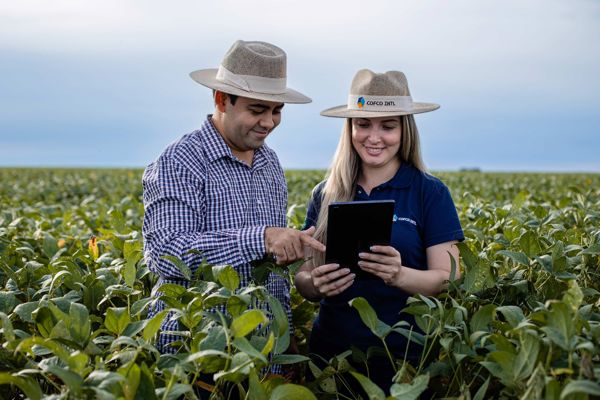
Argentina COVID-19 – At COFCO, people protection is key to a healthy supply chain
As the coronavirus spreads rapidly around the world, COFCO Argentina has raced to put the measures in place to protect its people and keep supply chains operational.
The Latin American country is the biggest exporter of soybean meal and oil. Any significant disruption could have very far-reaching consequences for food security around the world.
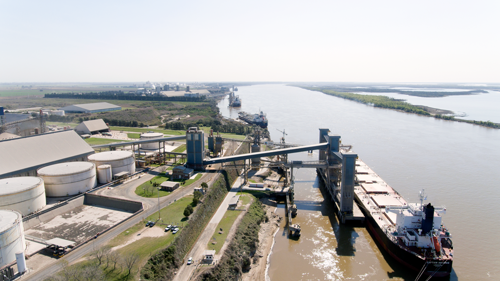
Argentina is in the middle of harvesting this season’s soybeans and corn, a lifeline for farmers and an important source of foreign currency for the country’s economy.
Health inspections slow roads and ports, while a national lockdown since March 20 keeps many staff at home. The majority of COFCO staff, who cannot work from home, need to take extraordinary measures to assure safety and protection.
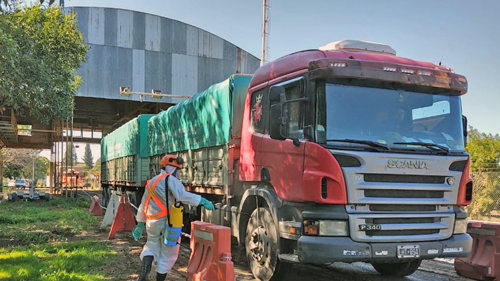
The scale of the challenge is immense. A single plant, for example, can receive some 700 trucks for soy and corn deliveries every day. All trucks arriving at COFCO’s terminals in Santa Fe Province now need to be disinfected by hand.
Hugo Acerbo, health and safety manager for COFCO Argentina, says it is thanks to the commitment of plant management and operations teams the situation is under control.
“This is a huge undertaking requiring all people to work together, “he says. “But if we keep our team healthy, maintain good external and internal communications, and continue preventive actions, our operations will keep going as well.”
“We are a critical part of a global food supply chain, and now more than ever we need to keep it going,” he adds.
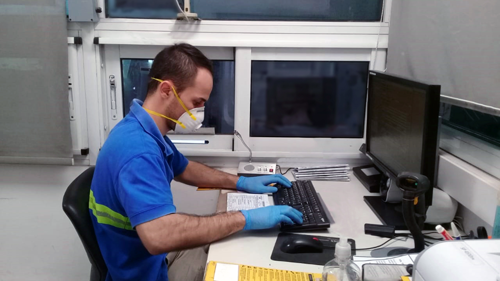
Adapting to a new normal
The lockdown has not had a major effect on COFCO administration, since COFCO’s office staff continue to work from home.
At COFCO plants, however, temperature checks are now mandatory for all employees, drivers, and visitors. Employees use disinfectant sprays, hand sanitizer, and gloves. And some wear protective masks as well.
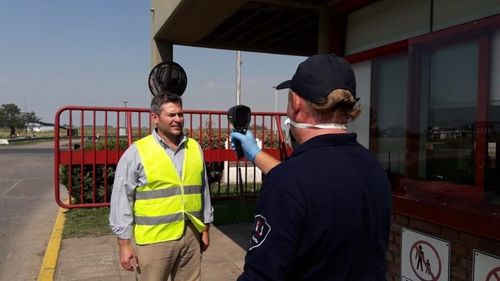
For staff that have contact outside of COFCO, other measures are needed. At the ports clustered around the city of Rosario, Argentina’s crop-export hub on the Parana River, no COFCO employee is allowed to board any ships or to be in close contact with the crew. All trucks are disinfected after unloading at the port terminals.
The drivers of these trucks are not employed by COFCO, but they are a vital link in the transport of soybeans and corn to COFCO’s processing plants and terminals. Interpersonal contact is often unavoidable, since documents are exchanged along the supply chain, together with the precious cargoes. Besides using protective gear such as gloves, COFCO staff also work with intercoms and use other “no touch” communication where possible.
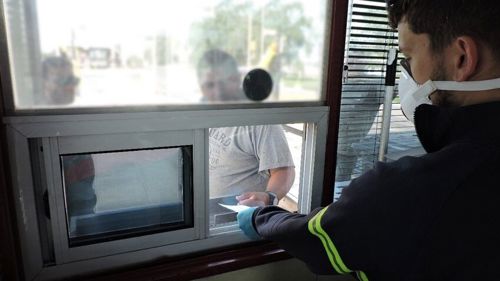
Last month, the UN’s Food and Agriculture Organization said disruptions to the global supply chain will become more visible in April and May, as COVID-19 prompts quarantines, transport restrictions, and shortages of labour.
“Nobody knows when the emergency will end. But until a solution is found, COFCO will take a people-first approach to protecting its supply chains for Argentinian soy and corn,” said Hugo Acerbo.
